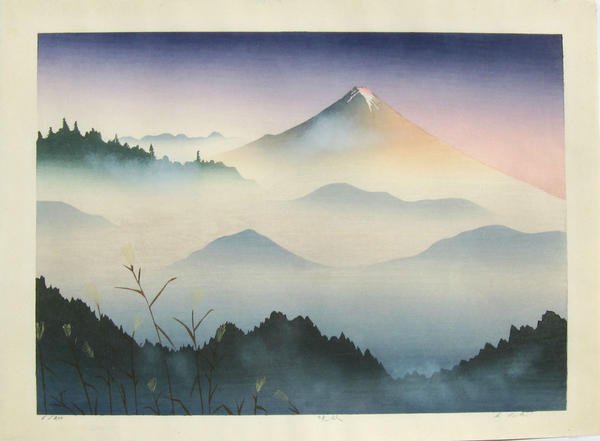like small islands
treetops
ukanderu kiri no naka ni ya kinokozue


I put the English first above because that is how I wrote it, then I translated it to Japanese. The funny thing is for the Japanese I removed the simile like small islands, because that was just too long. That is something that surprises many people: that due to the structure of the language, the traditional 5 / 7 / 5 count works out to a much much shorter poem in Japanese than in English.
That makes the Japanese roughly: floating / in the haze / treetops. That may actually make a stronger haiku. It leaves more to you the reader to fill in instead of me explicitly telling you how to picture it. I’ve kept the original English version in this post for reference, but I may use the Japanese version and a shortened English version if I publish this elsewhere.
I wrote this haiku after driving in the countryside one morning. It was a foggy morning, as they occasionally are. We have started to get hints of cooler weather in the morning and at night, and that always brings fog, especially in the mountains and hills. As I drove through the mist, the treetops looked like small islands floating in an ocean, inspiring the haiku.
Fog (or haze, as I called it here) is a kigo (season word) for autumn, which, according to the traditional Japanese calendar, we are already in.
❦
 |
David LaSpina is an American photographer and translator lost in Japan, trying to capture the beauty of this country one photo at a time and searching for the perfect haiku. He blogs here and at laspina.org. Write him on Twitter or Mastodon. |
🎉 Upvoted 🎉
👏 Keep Up the good work on Hive ♦️ 👏
❤️ @bhattg suggested sagarkothari88 to upvote your post ❤️
Congratulations @dbooster! You received a personal badge!
You can view your badges on your board and compare yourself to others in the Ranking